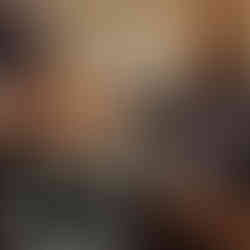Please tell us about the projects you worked on before making ‘Sol. Good’. How did you start, and how did you learn to make films?
I had worked on two feature films prior to Sol. Good. A film called “ Aami” with the veteran director Kamal and the film “9” with director Jenuse under Prithviraj sir’s production. Both experiences taught me how to handle crisis on set ,handling and guiding actors, a few many do’s and dont’s. Being a director has a lot more to do than just visualising a script for screen. I learned it through these wonderful Directors and crew
I started with a passion to act, but was convinced by a few that you need to have a certain look and appeal to yourself, in order to be presentable on screen. Hence I picked story telling , only to learn you can do both depending on how well you communicate your character through the screen. My father, a film buff and movie fanatic often shared trivia about films, the artists who created them and art in general. It became such a routine that my two brothers and myself were eager to hear what new stories he had to share, as they were generally some form of motivation. He inculcated in us all an attitude towards art, music and culture in general. We happened to pick up a few many skills along the way with my eldest brother setting the stepping stone as he was adept with picking up new skills that had anything to do with the creative experience. Thus we became musicians , painters, editors ,videographers and creators of some sort. We still didn’t have a certain direction to make use of these skills except that they were just hobbies or exercise for the mind. When the time came to specialise and pick a career for my future, my dad urged me to pick Architecture ,which was a blessing in disguise. For Architecture managed to roof all the skills and streamline it in harmony. Film making eventually become a culmination of everything we were taught and everything we enjoyed. We still continue to learn and experiment everyday.

Tell us about ‘Sol. Good’. How do you describe it?
Sol. Good started off as project of my own, simply to explore my capabilities and limitations. This project took off on a whim with my buddy and brother Aswin Kumar and our Cinematographer HariKrishnan Lohithadas, who was our pillar of strength during production. He made sure we powered through and finished regardless of us buckling under pressure. We experimented, failed and learned as much as we Could about filmmaking.
It not only involves writing and directing, but executing it through production, managing finance and the crew, understanding Camera technicalities, industry standards and it’s working. This was a Film School of my own.
Sol. Good is an excerpt from a feature film I had written but had not come to fruition. The film was of a Comedy tone. I adapted this story to a certain time and scenario so it would fit a shorter time period and a social situation.
Sol. Good deals with a character who is trapped in his own isolation and routine. The situation brings out certain shades in him by denying his own reality. Eventually creating a reality of his own. The disconnect from the present forces an Outsider to establish contact with him through a surreal medium. This forces him to draw himself out to confront his inner struggles , only to realise his own loved ones around him was fighting a struggle of their own and he was oblivious to it.
Please tell us about your favourite filmmakers.
Oh to select filmmakers from a large lot is something all filmmakers struggle with. We forget someone or the other anyways. So here ,
Stanley Kubrick and Akira Kurosawa are easily on the top of the list, if not, the list itself. Kurosawa’s “High & Low” was a particular revelation for me. Martin Scorsese, Pedro Almodovar, Bong Joon Ho, Wes Anderson, Dileesh Pothan, Barathan sir, Padmarajan, Rajkumar Hirani. The list is endless.
If you were given a good budget, what would be your ideal project?
Its hard to say, I don’t write based on budget. Ideally I would try to pull off a 2001 Space Odyssey or an Inception with whatever budget and tools allocated. That’s when your creativity is put to test. Such a constraint teaches you to explore new ideas to execute your vision.
Describe how you would ensure that production is on schedule. What steps would you take?
As an Architect or any designer in our circle says, spend a good amount of time on planning so that the execution is a lot more easier and shorter. Plan everything down to the last detail.
What was the hardest part of making ‘Sol. Good’.
Shooting in our own home with limited budget and dealing with a 100 tungsten lights as an overhead lighting system was definitely nerve wracking. The whole crew was in a hotbox being cooked everyday. Crew was kept tight due to spatial limitations and rig was minimal due to financial limitations. Furthermore we ended up spending most on production itself and that lead to most of the postproduction work done by myself which was particularly exhausting and profound at the same time.
If possible, tell us about your next work. What plans do you have for your future work?
I have already written a few screenplays, the hope is to direct and bring it your screens soon.















Kommentare